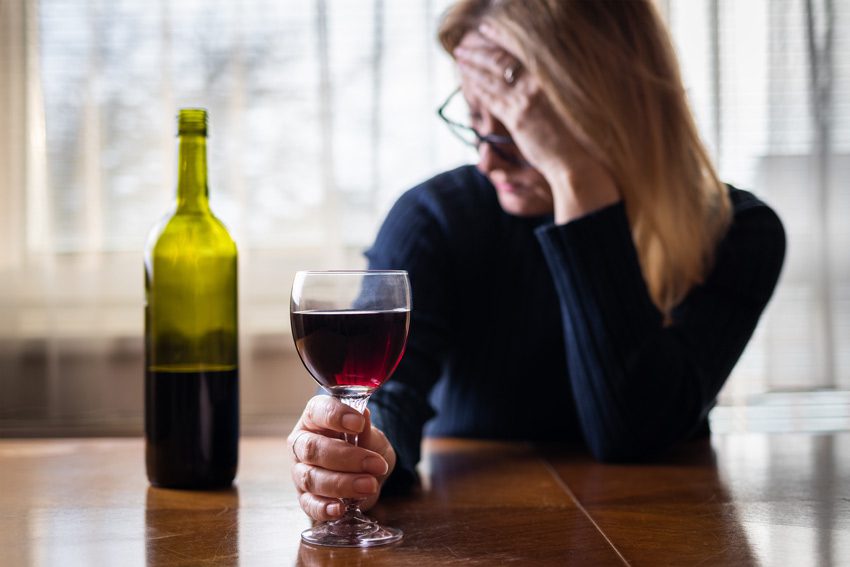Do you drink alcohol as a way to manage your anxiety? Do you feel that alcohol is all you need to get through the day? If you’re using alcohol for anxiety relief, you’re putting yourself at risk for addiction. You are probably also, in the long run, making your anxiety worse.
What Happens When You’re Anxious?
Everyone has stress in their lives. Anxiety is your brain’s way of dealing with high stress or worrisome situations. Anxiety is part of the fight-or-flight response that can help you take action and manage a stressor. Anxiety is normal–until it starts to disrupt your life and compromise your health. If you have an anxiety disorder, you may feel anxious or nervous all of the time. You may worry about things that most people wouldn’t worry about. You may have thoughts and fears that take over your day and limit your ability to do things you want or need to do.
How Does Anxiety Lead to Alcohol Misuse?
Alcohol is a drug that works as a depressant: it calms the central nervous system. It’s common for people to get a drink after a long day as a way to unwind. They are counting on alcohol’s depressant qualities to help them to feel relaxed.
In these cases, people are not necessarily using alcohol to get drunk. Rather, they are trying to slow down thought processes and find some escape from everything they are anxious about.
When Does This Lead to Abuse?
Having a drink with friends seems harmless. A glass of wine after a long day at home with the kids seems normal (especially when you take into account how many people talk about it on social media). Yet, using alcohol as a way to unwind causes two real threats:
1. It creates the risk of addiction.
A stressful day at work leads to drinking after each shift. This may happen once or twice a week at first but becomes necessary more often as the body begins to build a tolerance. Soon, you may feel like you need to drink more to feel the same effects; you may feel like you need alcohol to get you through your day at work.
It is more common to become dependent on alcohol than many think it is. As the National Institute on Alcohol Abuse and Alcoholism notes, 14.4 million people over the age of 18 have an alcohol use disorder. You don’t have to drink a significant amount to develop dependency and addiction. You don’t even have to become intoxicated.
2. It does not solve the anxiety–and could make it worse.
Alcohol doesn’t take away the anxiety: it just makes it easier to temporarily ignore it. Growing dependent on alcohol will only increase anxiety in the long term because you will have to deal with the consequences of dependence: financial strain, health problems, and potential work and relationship problems. When you don’t face your anxiety and learn to cope with it, you are putting your mental health at risk. Dealing with your anxiety may mean:
- Resolving the issues that cause it, in cases where the anxiety is attached to specific events
- Dealing with an underlying mental health disorder that is making anxiety uncontrollable
- Overcoming past trauma or fears
- Working through or moving past relationships that create detrimental feelings
- Acknowledging your need to work with a mental health professional
Are You Facing Addiction to Alcohol?
It’s not always easy to know if you’ve developed an addiction and if anxiety is the cause. Here are a few signs of addiction to pay close attention to:
- When you feel stress or anxiety, you think about or turn to alcohol for relief
- You need to drink often, even if it is just a glass of wine each day
- If you do not have alcohol, your anxiety seems to get worse, and you feel cravings for a drink
- You’re drinking more now than you ever have before
- It’s become harder to push aside your worries even if you are drinking
When you are in this place, it’s up to you to find the help and guidance you need to work through your addiction and deal with your anxiety. It starts by admitting you need help. At DK Solutions Group, our team can work closely with you to find a solution to your anxiety as well as your addiction. You don’t have to live with or just “deal with” either one of these complexities in your life.

